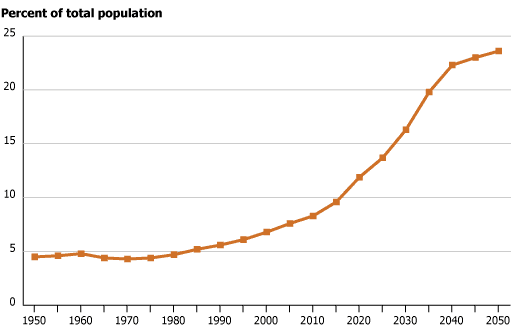Retirees are urged to become entrepreneurs to stem China's ageing problem

By 2030, about a quarter of China's population will be over 65 years old. Image: REUTERS/Guang Niu

Get involved with our crowdsourced digital platform to deliver impact at scale
Stay up to date:
China
China has an aging problem: By 2030, about a quarter of its population will be over 65 years old — almost surpassing Japan as the oldest country in the world — and imposing tremendous stress on the country’s social welfare system.
What are some possible solutions? Other than raising the retirement age and ending birth limits (currently under consideration), the northeastern province of Liaoning wants to encourage its retirees to start private businesses so as to remain in the workforce. The provincial government issued Population Development Plan (2016-2030) in late June, an official document that outlines policies regarding the province’s population growth and social welfare.
The province plans to “gradually implement delayed retirement policies, improve the retirement age policy for employees, effectively explore human resources of senior citizens, and establish a talent database for the elderly.”
“Vigorously develop education and training for the elderly, support the elderly to start their own businesses, and encourage experts in professional fields to extend their working years,” the document says.
Liaoning, one of China’s three northeastern provinces collectively known as Dongbei 东北, is often compared to the rust belt of the U.S. The region once relied heavily on agricultural production, and bolstered the nation’s economic development after 1949. But as China began to reinvent its private sector during the reform and opening era, the region’s GDP experienced a downfall. That economic decline left a significant number of former “iron bowl” state-sponsored employees out of work.
By 2015, 20.6 percent of Liaoning residents were over 60 years old. In 2017, that number had increased to 22.7 percent. The aging problem will only accelerate through 2030, the document concludes.
Some people have pointed out that other countries, especially those with similar aging problems, have proposed similar plans. “In 2015, about one-third of Japan’s new entrepreneurs were senior citizens over 60 years old. The number was only 8 percent 30 years ago,” the National Business Daily quoted a People’s Daily commentary as saying in September 2017, highlighting that the Japanese government subsidizes retirees who start their own businesses. By 2014, more than 30 percent of the Japanese population was above 60 years old.
“As the aging problem intensifies and the labor force declines, encouraging seniors to start their own businesses is a way of utilizing the resources of the elderly population,” said Yan Qingchun 阎青春, executive deputy secretary of the China Aging Development Foundation 中国老龄事业发展基金会. “We should learn from the experience of other countries and encourage talented seniors to start their own businesses.”
There were complaints from the public. “Leave the elderly alone and let them enjoy their retirement,” one Weibo user commented. “Even many young entrepreneurs have failed. Why are you allowing the elderly to take such risks?”
Don't miss any update on this topic
Create a free account and access your personalized content collection with our latest publications and analyses.
License and Republishing
World Economic Forum articles may be republished in accordance with the Creative Commons Attribution-NonCommercial-NoDerivatives 4.0 International Public License, and in accordance with our Terms of Use.
The views expressed in this article are those of the author alone and not the World Economic Forum.
Related topics:
The Agenda Weekly
A weekly update of the most important issues driving the global agenda
You can unsubscribe at any time using the link in our emails. For more details, review our privacy policy.
More on ChinaSee all
Spencer Feingold
March 6, 2024
Andre Vasconcelos, Erasmus zu Ermgassen and Yuan Zhang
February 27, 2024
Liming Chen
January 14, 2024
Winston Ma
January 11, 2024
Nicolas Aguzin
January 3, 2024







